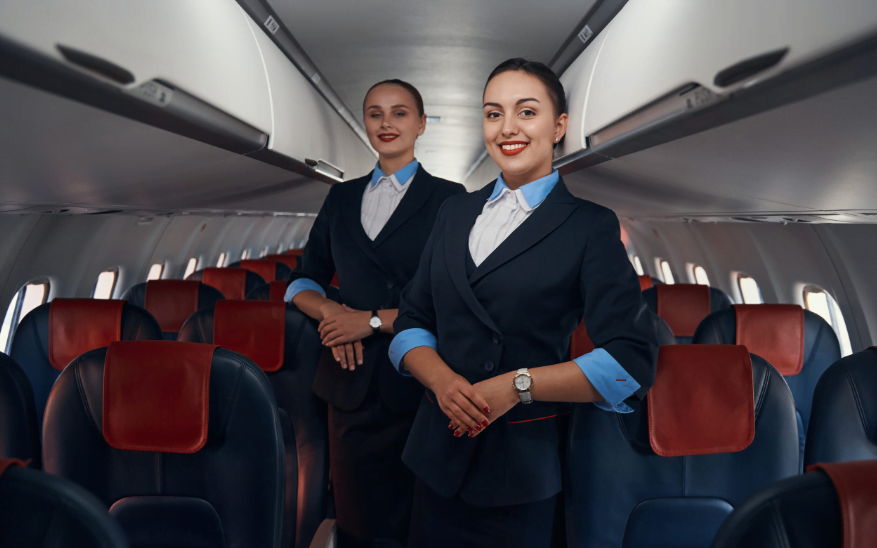Becoming a flight attendant can be an exciting career choice for those who love to travel and work in a customer-focused environment. However, choosing the right airline to work for can make a significant impact on the experience of being a flight attendant. In this essay, we will explore some of the best airlines to be a flight attendant for based on factors such as work culture, benefits, and opportunities for growth.
What is a Flight Attendant?
A flight attendant, also known as cabin crew or steward/stewardess, is a trained professional who ensures the safety, comfort, and well-being of passengers during flights. They play a crucial role in providing exceptional customer service, maintaining cabin safety, and assisting passengers with various needs throughout the journey.
What are the Benefits of Being a Flight Attendant?
Being a flight attendant comes with several benefits, including:
- Travel Opportunities: One of the significant perks of being a flight attendant is the chance to explore different destinations around the world. You get to visit new cities, experience diverse cultures, and have unique travel experiences as part of your job.
- Flexible Schedule: Flight attendants often enjoy flexible work schedules, which can be ideal for those who value work-life balance or have personal commitments. Airlines operate flights throughout the day, including weekends and holidays, offering a variety of scheduling options.
- Competitive Salary and Benefits: Flight attendants receive competitive compensation packages, which may include base salary, per diems, flight allowances, and bonuses. Additionally, they often receive health insurance, retirement plans, and discounted or free travel privileges.
- Career Growth and Development: Airlines provide opportunities for career growth and advancement within the aviation industry. Flight attendants can progress to senior positions, such as lead flight attendant or purser, or explore roles in training, management, or corporate positions.
- Interpersonal Skills Development: Working as a flight attendant enhances your interpersonal and communication skills. You interact with passengers from diverse backgrounds, handle challenging situations with professionalism, and develop exceptional customer service skills.
What are the Challenges of Being a Flight Attendant?
While being a flight attendant offers numerous benefits, it also comes with its share of challenges, including:
- Irregular and Demanding Schedule: Flight attendants often work irregular hours, including early mornings, late nights, weekends, and holidays. The constantly changing schedule can make it challenging to maintain a regular routine or spend time with family and friends.
- Jet Lag and Fatigue: Frequent travel across time zones can lead to jet lag and disrupt sleep patterns. Flight attendants must adapt to changing time zones, work long hours, and manage fatigue effectively to perform their duties safely.
- Work-Life Balance: Balancing personal life and work commitments can be challenging for flight attendants, given their unpredictable schedules. This can impact relationships, social activities, and overall quality of life.
- Dealing with Difficult Passengers: Flight attendants occasionally encounter challenging or disruptive passengers. They must handle such situations calmly, diffuse conflicts, and ensure the safety and comfort of all passengers on board.
How to Become a Flight Attendant

To pursue a career as a flight attendant, consider the following steps:
- Meet Basic Requirements: Airlines typically have specific requirements for age, height, weight, and physical fitness. Ensure you meet these basic criteria before applying.
- Education and Training: While a college degree is not always required, having a high school diploma or equivalent is necessary. Completing a flight attendant training program from an accredited institution or airline is also essential.
- Gain Customer Service Experience: Developing strong customer service skills is crucial for a flight attendant. Gain experience in customer-facing roles, such as hospitality, retail, or service industry jobs, to enhance your customer service abilities.
- Language Skills: Being proficient in multiple languages, particularly English, is advantageous in the aviation industry. Consider learning additional languages to improve your employment prospects.
- Apply and Interview: Research different airlines and submit your application online. If shortlisted, you will be invited for an interview, which may include group exercises, individual interviews, and assessments of your customer service and problem-solving skills.
- Complete Training and Certification: If selected, you will undergo intensive training provided by the airline. This training covers safety protocols, emergency procedures, first aid, and customer service. Successful completion of the training program leads to certification as a flight attendant.
Remember, each airline may have specific requirements and procedures for becoming a flight attendant. Stay updated with industry trends, network with professionals in the field, and be prepared to seize opportunities that align with your career aspirations.
best airlines to be a flight attendant for
There are many great airlines to be a flight attendant for, but some of the best include:
Emirates is an airline based in Dubai, United Arab Emirates, and is known for its luxurious amenities and exceptional customer service. As a flight attendant for Emirates, employees can expect competitive pay, generous vacation time, and opportunities for growth and advancement within the company. In addition, Emirates provides housing and transportation for its employees, allowing for a comfortable and stress-free work environment.
Virgin Atlantic
Virgin Atlantic is a British airline known for its innovative approach to customer service and unique company culture. Flight attendants for Virgin Atlantic can expect competitive pay, comprehensive benefits, and opportunities for career growth and development. In addition, Virgin Atlantic offers a supportive and inclusive work environment, emphasizing the importance of work-life balance for its employees.
Singapore Airlines
Singapore Airlines is the flagship carrier of Singapore and is known for its exceptional service and attention to detail. As a flight attendant for Singapore Airlines, employees can expect competitive pay, comprehensive benefits, and opportunities for growth and advancement within the company. Singapore Airlines also provides extensive training for its flight attendants, emphasizing the importance of safety and customer service in their work.
Qantas
Qantas is the national airline of Australia and is known for its friendly and welcoming customer service. As a flight attendant for Qantas, employees can expect competitive pay, comprehensive benefits, and opportunities for growth and development within the company. In addition, Qantas emphasizes the importance of work-life balance and provides its employees with extensive training and support.
Delta Air Lines
Delta Air Lines is a major American airline known for its customer-focused approach to air travel. As a flight attendant for Delta, employees can expect competitive pay, comprehensive benefits, and opportunities for growth and advancement within the company. Delta also offers a supportive and inclusive work environment, emphasizing the importance of diversity and inclusion in their hiring practices.
Choosing the right airline to work for can make a significant impact on the experience of being a flight attendant. By considering factors such as work culture, benefits, and opportunities for growth, individuals can make informed decisions about their career choices. The airlines listed above are some of the best options for those who want to work in a customer-focused environment and have opportunities for growth and development within their company.
In conclusion, becoming a flight attendant can be an exciting and rewarding career choice. By choosing the right airline to work for, individuals can have a positive and fulfilling experience as a flight attendant. The airlines listed above are some of the best options for those who value work culture, benefits, and opportunities for growth and development.

